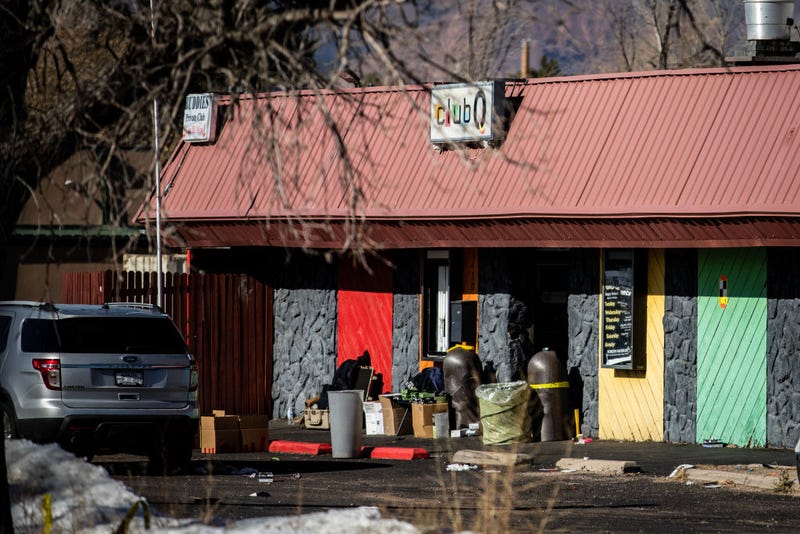
DENVER (AP) — The shooter who killed five people and injured 19 others at an LGBTQ+ club that was a refuge in the conservative city of Colorado Springs pleaded guilty to federal hate crime charges and was sentenced to 55 life terms in prison on Tuesday, but once again declined to apologize or say anything to the victims’ families.
Prosecutors nevertheless highlighted the importance of Anderson Lee Aldrich finally being forced to take responsibility for the hatred toward LGBTQ+ people that they say motivated the mass shooting. As part of the plea agreement, Aldrich repeatedly admitted on Tuesday to evidence of hatred.
“The admission that these were hate crimes is important to the government, and it’s important to the community of Club Q,” said prosecutor Alison Connaughty.
By targeting Club Q, Aldrich attacked a place that was much more than a bar, Connaughty added.“It’s a special gathering place for anyone who needed community and anyone who needed that safe place,” she said. “We met people who said ‘this venue saved my life and I was able to feel normal again.’”
Aldrich, 24, is already serving life in prison after pleading guilty to state charges in the 2022 shooting last year. Federal prosecutors focused on proving that the attack at Club Q — a sanctuary for LGBTQ+ people in the mostly conservative city — was premeditated and fueled by bias.
U.S. District Judge Charlotte Sweeney, the first openly gay federal judge in Colorado, heard heart-wrenching testimony from victims before accepting the agreement, which also includes a total of 190 years on gun charges and other counts.
“You will never get out of prison,” the judge said.
Aldrich, appearing in an orange prison uniform with head shaved and wrists handcuffed, declined to speak at the sentencing. Defense attorney David Kraut made no explicit mention of hate or bias in his comments.Kraut said there was no singular explanation for why Aldrich carried out the shooting, but he mentioned childhood trauma, a sometimes abusive mother, online extremism, drug use and access to guns as factors that “combined to increase the risk that Anderson would engage in extreme violence.”
Defense attorneys in the state case had pushed back against hate as a motivation, arguing that Aldrich was drugged up on cocaine and medication at the time. In phone calls from jail with The Associated Press last year, Aldrich didn’t answer directly when asked whether the attack was motivated by hate, saying only, that’s “completely off base,” and ultimately pleaded no contest to the state hate crime charges, which is short of admitting guilt.
Connaughty said investigators uncovered evidence of Aldrich’s hate for the LGBTQ+ community that included two websites created by Aldrich to post hate-related content, a target found inside the defendant’s house with a rainbow ring that had bullets in it and the defendant’s sharing of recordings of 911 calls from the 2016 killing of 49 people at the gay-friendly Pulse nightclub in Orlando, Florida,.
Aldrich also studied other mass shootings, accumulated weapons, shared an online manifesto from a mass shooter who referred to transgenderism as a “disease,” and coordinated a spam email campaign against a former work supervisor who is gay, the prosecutor said. More here
